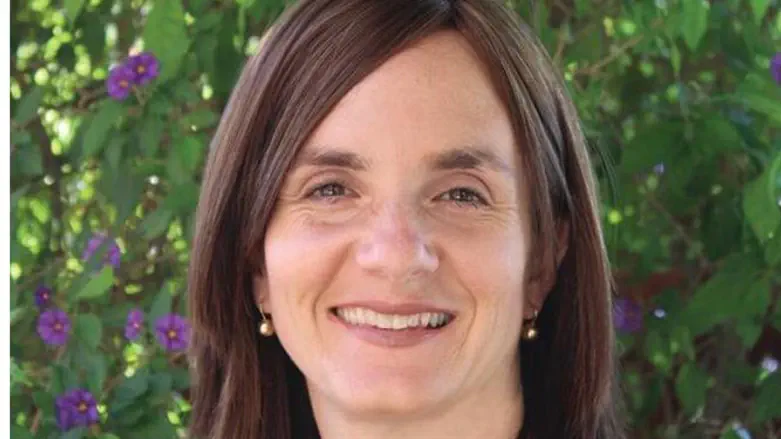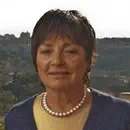
As I write this review, we are in the midst of the Nine Days, spanning the period from the first day of the month of Av to the fast of the 9th which mourns the Temples' destruction (may we merit speedily that "the fasts of the fourth, fifth, seventh and tenth months become joyful and glad occasions and happy festivals for Judah...").
This is a period considered inauspicious for making important decisions such as buying a home or closing deals, so it seems the perfect time for working on improving and honing wise decision making skills for the rest of the year.
Choices, whether major or insignificant. can be a significant source of anxiety before deciding, a cause of insecurity during the process and depressing regret once the choice has been made. We have all seen that happen to people of all ages or experienced it ourselves – ranging from agonizing decisions such as:
What should I do about my parents' requests that I date someone? Where should I go to college? Should I make aliya? Should I marry him\her? Where should I live? What kind of school is best for the children? Should I quit this job? Should I retire or continue working?
And all the way to:
What gift should I buy my in-laws? What should I make for dinner? Should I splurge on this outfit? Should I throw out these old shmattes? Should I eat only health foods?
From the sublime to the bordering-on ridiculous, we make decisions all our lives, some important, some temporary, some lasting and some fleeting. And we have all heard the sentence "I hate making decisions" and know people who try to get significant others to do the deciding for them. (Note: This is not about decisions between good and evil, right and wrong, law-abiding and criminal – in those cases, the decision is clear, it is the will power to act in accordance with it that is often subject to temptation and difficulty.)
Everyone knows people who are carefree and easygoing until the moment in which they are expected to make a decision. Picking a new piece of furniture or article of apparel is a nerve wracking, earth-shaking challenge for them – this does not refer to people whose limited finances are the cause for that hesitation– and they give interior decorators and wardrobe planners, who narrow down the available choices, ulcers because they cannot make up their minds. But when it comes to choosing a spouse, a place to live, higher education or a job – all of which are significant decisions, people who have no problem with making choices often find themselves standing just as paralyzed at the crossroads.
So it's not only those who have trouble with decisions in general, those who need help with the very concept of decision making. All of us have had or will have game changing decisions to make that keep us up at night and find ourselves wishing someone would tell us "what to do", as Lisle sang in the Sound of Music.
Shayna Goldberg of Alon Shvut, an editorial contributor to Darcheha, a website on halakha geared to women and a popular halakha tecacher at the midrasha for women in Migdal Oz, connected to Har EtzionYeshiva in Gush Etzion, has used her vast experience in helping students and young people make important decisions to write a self-help book that really helps, this after ayoung couple she had worked with and her husband told her to write down her methods. Realizing the subject is important for others, she moved from educational situations to real life and the result is her new book "What do you really want? Trust and fear in decision making at life's crossroads and in everyday living," published by Magid Books at Koren Publishers.

Her flowing, pleasant writing takes us through real life decision-making case scenarios that cover the big ones like school and career, who to marry, family size, where to live and in which kind of Orthodox setting, as well as the ongoing ones, like personal finances and use of time. The book also deals with later stages in life, such as job satisfaction, retirement and dealing with adult children. Wanting to lead a Torah-true lifestyle is a given.
It was nostalgic for me to read that in the Migdal Oz midrasha, so many overseas students hesitate over the decision about whether to stay in Israel or return to their place of birth at the end of their Israel gap year. Our many overseas student Shabbat guests throughout the decades during which we have been living in Israel would have been helped a great deal by this book. I remembered myself, wanting with all my heart to remain in Israel after my period of study in Jerusalem and the reasons I returned to the US, wisely it turned out, to finish my schooling and make aliyah as a young wife and mother, a couple who had saved for a while and who could earn a living and therefore built an independent, settled life in the Jewish State we loved.
No, the writer does not tell the reader what to do, or direct us to someone who will. Instead, she shows us how to reach the point where we make decisions in optimal fashion, helping us sort out the factors that affect our thoughts and opinions about the various possibilities from which to choose. She raises the basic questions that are crucial to the process that makes the decision ours:
What am I looking for in life? What makes me happy and fulfilled? What has meaning for me? What are the fears causing my decisional agonizing and which of them should or should not be taken into account? And the bottom line: What do I really want? Can I trust my gut feelings?
She also tells us, comfortingly, that research points to the fact that decision making is harder than it used to be – there are many more possibilities from which to choose, less limitations on those choices in comparison to the past, and so much of what used to be clear parental guidance has become facilitation and acceptance.
In the case of this easy to read and interesting book, I can vouch for its efficacy myself- and therefore can highly recommend it The book arrived at my house just when a grandson was at a crossroads after years of having a clearly defined road that led from high school to Hesder and IDF service, academic studies, research and writing his doctoral thesis in a field he found fascinating and had therefore chosen with comparative ease.
He now had to decide what to do next. Choosing to go out of academia into the wide world was easy for him, but as a result he found himself faced with several vastly different choices of work opportunities, and for the first time he could remember, was unsure of what to do. I had just read this book and decided to invite him over to discuss its salient points after he read a good part of it (despite the fact that he was born in Israel and it is in English, he said its style was flowing and therefore inviting). Taking the author's advice, he made a list of every parameter he could think of, rational, emotional, and what have you, and I was really pleased to see him smiling and confident when he realized how much the book had helped him choose on his own, compare the jobs objectively, find out what he really wanted and go for it.
As I wrote above, this is a self-help book that really helps.
What is Shayna Goldberg's secret? Perhaps it is the most important word in this book - trust. Trust in your real self, awareness of the role of your real self, realizing and overcoming fear of the factors that wear away at that trust. Then faith in your decision, accepting responsibility for it, and finding the courage to go through with it, remembering that everything truly worthwhile takes a lot of hard work and effort.Add to that the courage to change a decision if you discover it was not the right one.
Crucial for a happy life, trust in oneself (not the same as bitachon, trust in G-d which of course comes first) is not easy to develop if it is not a part of one's upbringing, and that is why how to raise children with trust is a very special chapter towards the end of the book and a must for parents and educators..
One of the contradictions of our generation, according to this wise writer, is that we are autonomous, but we are not always happy. We are free, but we are not always liberated. We do what we want, but we do not always look back and feel comfortable with our choices. This book can help alleviate the angst accompanying decision making in our confusing, temptation-ridden and pressure-laden milieu.
Rochel Sylvetsky made aliya to Israel with her family in 1971, coordinated Mathematics at Ulpenat Horev, worked in math curriculum planning at Hebrew U. and as academic coordinator at Touro College Graduate School in Jerusalem. She served as Chairperson of Emunah Israel and was CEO of Kfar Hassidim Youth Village. Upon her retirement, Arutz Sheva asked her to be managing editor of the English site, a position she filled for several years before becoming Senior Consultant and Op-ed andJudaism editor. She serves on the Boards of Orot Yisrael College and the Knesset Channel.
